To provide the best experiences, we use technologies like cookies to store and/or access device information. Consenting to these technologies will allow us to process data such as browsing behaviour or unique IDs on this site. Not consenting or withdrawing consent, may adversely affect certain features and functions.
The technical storage or access is strictly necessary for the legitimate purpose of enabling the use of a specific service explicitly requested by the subscriber or user, or for the sole purpose of carrying out the transmission of a communication over an electronic communications network.
The technical storage or access is necessary for the legitimate purpose of storing preferences that are not requested by the subscriber or user.
The technical storage or access that is used exclusively for statistical purposes.
The technical storage or access that is used exclusively for anonymous statistical purposes. Without a subpoena, voluntary compliance on the part of your Internet Service Provider, or additional records from a third party, information stored or retrieved for this purpose alone cannot usually be used to identify you.
The technical storage or access is required to create user profiles to send advertising, or to track the user on a website or across several websites for similar marketing purposes.
 As lockdown starts to lift, more people are having to think about going back to work as normal. That means commutes, offices, cafeterias, and face to face meetings. CPD Online College, surveyed over 1,000 UK employees to find out how they feel about returning to the office prior to everyone being vaccinated. (more…)
As lockdown starts to lift, more people are having to think about going back to work as normal. That means commutes, offices, cafeterias, and face to face meetings. CPD Online College, surveyed over 1,000 UK employees to find out how they feel about returning to the office prior to everyone being vaccinated. (more…)






 Feeling ostracised by family members has a negative effect on employee creativity, more so than feeling ostracised at work, claims new research from
Feeling ostracised by family members has a negative effect on employee creativity, more so than feeling ostracised at work, claims new research from 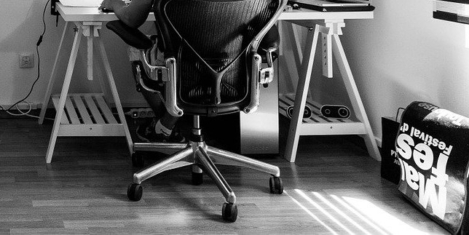
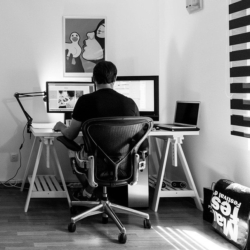 Research commissioned by
Research commissioned by 
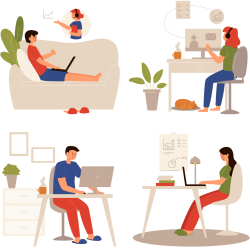



 A new global survey by CFO Research and
A new global survey by CFO Research and 
 More than a year after the coronavirus was first reported the UK, the impact on business is undeniable. Research conducted by
More than a year after the coronavirus was first reported the UK, the impact on business is undeniable. Research conducted by 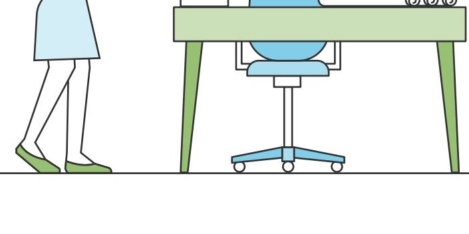
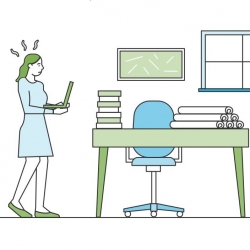 Glint’s latest insights report shows that there is a worrying increase in employees experiencing challenges with their mental health, with burnout risk trending upwards year-over-year. That spiked in late March 2020 and climbed by nearly 4 percent between August and December 2020. That’s not a big surprise, given the first challenging months of the global pandemic. Paradoxically, employees say that despite feeling burnt-out, they also feel happier at work at the end of a year of lockdown than they did at the start. Is this some sort of contradiction—or evidence of something very encouraging about the state of HR?
Glint’s latest insights report shows that there is a worrying increase in employees experiencing challenges with their mental health, with burnout risk trending upwards year-over-year. That spiked in late March 2020 and climbed by nearly 4 percent between August and December 2020. That’s not a big surprise, given the first challenging months of the global pandemic. Paradoxically, employees say that despite feeling burnt-out, they also feel happier at work at the end of a year of lockdown than they did at the start. Is this some sort of contradiction—or evidence of something very encouraging about the state of HR? 


 Skills have become the new currency of workforce and talent strategies, as more than half of organisations that responded to the
Skills have become the new currency of workforce and talent strategies, as more than half of organisations that responded to the 
 Many of us are looking forward to a summer of relative freedom, with road-mapped milestones that will grant us more opportunities to see our friends and family. But we’ll be carrying the effects of months of isolation into those meetings, including a sense that our social skills will need dusting off, and our wits will need sharpening. The mental effects of lockdown have been profound. Social isolation has been shown to cause people’s
Many of us are looking forward to a summer of relative freedom, with road-mapped milestones that will grant us more opportunities to see our friends and family. But we’ll be carrying the effects of months of isolation into those meetings, including a sense that our social skills will need dusting off, and our wits will need sharpening. The mental effects of lockdown have been profound. Social isolation has been shown to cause people’s 







April 16, 2021
Hybrid working risks becoming a meaningless term
by Ben Gillam • Comment, Flexible working, Workplace design